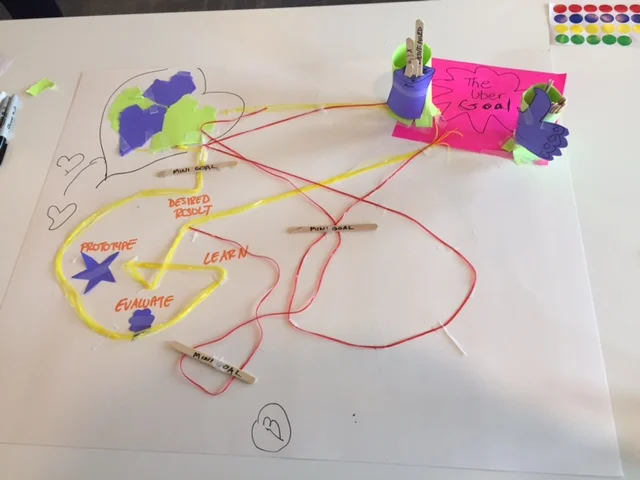What is a “Networking Lab”?
The idea of a “networking lab” was coined by us (Aleeya, Lesley & Kate) when we were asked to share what we were learning in and from the social lab space.
Aleeya was “hot desked” with Skills Society and the Skills Society Action Lab. With access to this very cool space (and social enterprise), and an opportunity to share what we were learning, the “Networking Lab” emerged.
Here is our simple, step-to-step guide that will help you understand and recreate your own “Networking Lab."
This method has been tested at the 2015 Waves of Change conference in Edmonton, at the 2016 official launch of the Skills Society Action Lab in Edmonton, and at the First Annual Environmental Gathering: Change the Climate 2016, hosted by Alberta Ecotrust in Calgary.
Initial Prep:
- Know your audience;
- Remember, it is just a taster! The outcome is to expose participants to lab tools and various facilitation techniques. You will not solve our most complex problems by hosting a networking lab...
- Have fun and be open minded!
How does it work?
- Set up white boards around the room. On each whiteboard, have an activity/lab tool with instructions that each participant can participate in. For example:
- Empathy Mapping
- Picture Explorer
- Creative Hats
- Lego Serious Play
- Each station will have a question or prompt related to the audience and theme of the networking lab:
- Ex:“How do we integrate sustainability into our everyday business models?”
- Ex: What would your like the future of Social Innovation in AB to look like?
- Kick off your networking lab by inviting each participant to take part in the activities
- A steward who knows the lab tool well should be present at each station guiding the participants. Remember, each person will respond in their own way. Let them explore!
Additional resources for activities and lab tools:
Open Policy Making Toolkit by Policy Lab UK
DIY Toolkit an initiative of Nesta
Follow the Rabbit: A Field Guide to Systemic Design by Alberta CoLab
What will participants take away?
- Exposure to what is possible in a social lab;
- Introduction to lab tools (ethnographic processes, stakeholder collaboration, prototyping etc) that form a core part of a social lab process;
- Opportunities to express thoughts and ideas, and make new connections, in a visual and relational way;
- Introduction to facilitation techniques that help us think around complex issues;
- New friends, partners, or allies through deep conversation and idea sharing.
NOTE: Refreshments are optional (of course!), but can add a fun and social atmosphere to your networking lab..!



